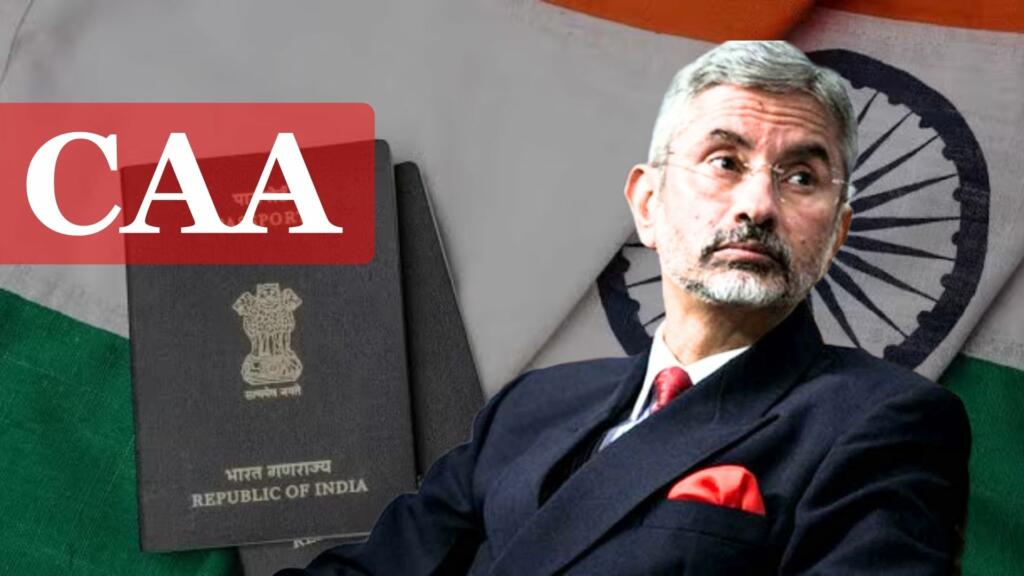The Citizenship Amendment Act (CAA) has been a subject of global scrutiny since its inception, with various nations expressing concerns about its implications. However, amidst this international discourse, India’s External Affairs Minister, S Jaishankar, has taken a bold stance, challenging the United States’ understanding of India’s history in response to criticism of the CAA. His remarks at the India Today Conclave shed light on the complex historical context behind the CAA and questioned the comprehension of global commentators regarding India’s Partition.
Jaishankar’s Exposition
Jaishankar’s critique arises amidst intense debate surrounding the Citizenship Amendment Act (CAA), which has stirred both national and international controversy. The law, designed to provide citizenship to persecuted minorities from neighboring countries, has drawn criticism for its perceived exclusion of Muslims. However, Jaishankar’s intervention delves beyond the surface critique, delving into the historical backdrop of the CAA. He highlights the pivotal role of India’s Partition in 1947, asserting that this historical trauma is frequently disregarded in global discussions. By drawing attention to this overlooked aspect, Jaishankar aims to contextualize the CAA within the broader narrative of India’s struggle for minority rights and its efforts to address the repercussions of Partition. His critique underscores the necessity of understanding the complex historical context surrounding the CAA, beyond simplistic interpretations of religious discrimination, to grasp its intended objectives and implications accurately.
Also Read: Deciphering CAA, the Citizenship Amendment Act: Myths vs. Realities
Challenging Misconceptions
One of the key points highlighted by Jaishankar is the tendency to overlook the complexities of India’s history, particularly the traumatic experience of Partition. He emphasizes that the CAA aims to address the repercussions of Partition, providing a safe haven for minorities who faced persecution in the aftermath of the division. By challenging the US’ comprehension of India’s history, Jaishankar aims to contextualize the CAA within a broader narrative of nation-building and protection of minority rights.
The Role of Democracy and Principles
In his remarks, Jaishankar also addresses the principles of democracy and equality, which have been central to the US criticism of the CAA. He acknowledges the importance of these principles but argues that they must be understood within the historical context of India. By highlighting similar instances in US policies, such as fast-tracking citizenship for minorities, Jaishankar aims to demonstrate the complexities of addressing historical injustices in a democratic framework.
Also Read: Jaishankar’s Sharp Wit: China’s Intentions Under Scrutiny
Answering The US Criticism
The exchange between Jaishankar and US Ambassador Eric Garcetti at the India Today Conclave encapsulates contrasting views on the Citizenship Amendment Act (CAA). Garcetti underscores principles of religious freedom and equality, echoing concerns raised internationally. In response, Jaishankar advocates for a nuanced comprehension of India’s historical context, particularly emphasizing the legacy of Partition. This exchange underscores differing interpretations of the CAA’s objectives and implications.
The subsequent Indian government rebuke towards US criticism reaffirms the CAA as an internal policy matter, rooted in India’s inclusive ethos and commitment to human rights. It asserts India’s sovereignty in shaping citizenship laws while signaling resistance to external interference. This firm stance underscores India’s determination to address historical injustices and protect persecuted minorities within its borders. Despite international scrutiny, India maintains its position, asserting the primacy of its democratic processes and inclusive traditions in shaping domestic policies.
In Conclusion, Jaishankar’s critique of the US understanding of India’s history in response to criticism of the CAA underscores the complexity of the issue at hand. By contextualizing the law within the historical framework of Partition, Jaishankar aims to challenge misconceptions and assert India’s sovereignty in shaping its citizenship policies. As the debate continues both domestically and internationally, it remains imperative to engage in informed dialogue that acknowledges the multifaceted nature of India’s history and the challenges of addressing historical injustices in a democratic society.
Also Read: From Dollars to Rupees: India’s Game-Changing Currency Conundrum
